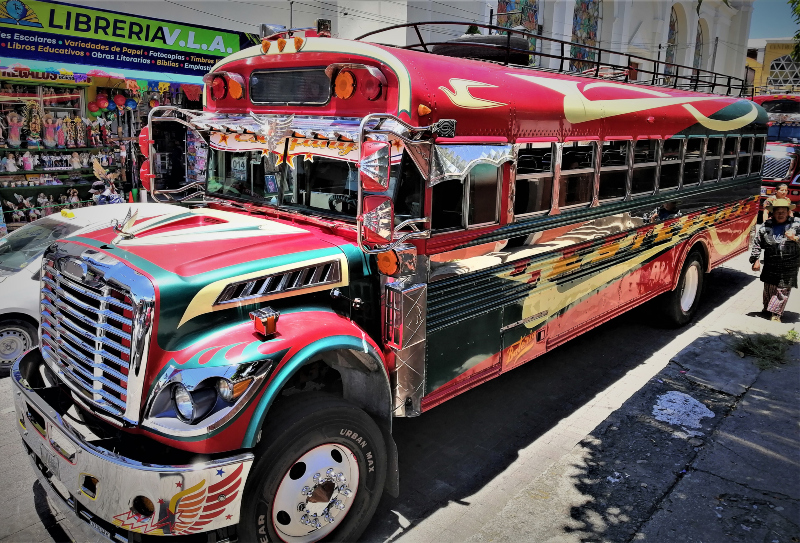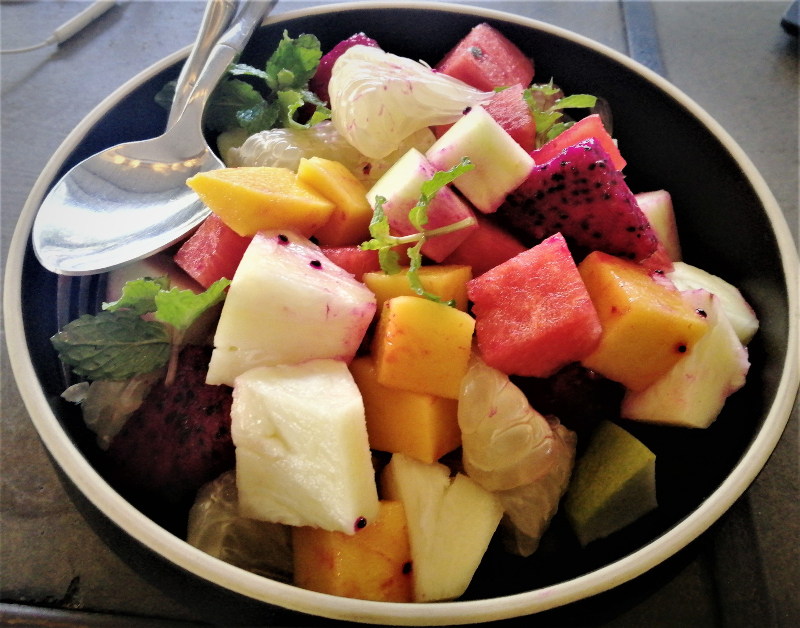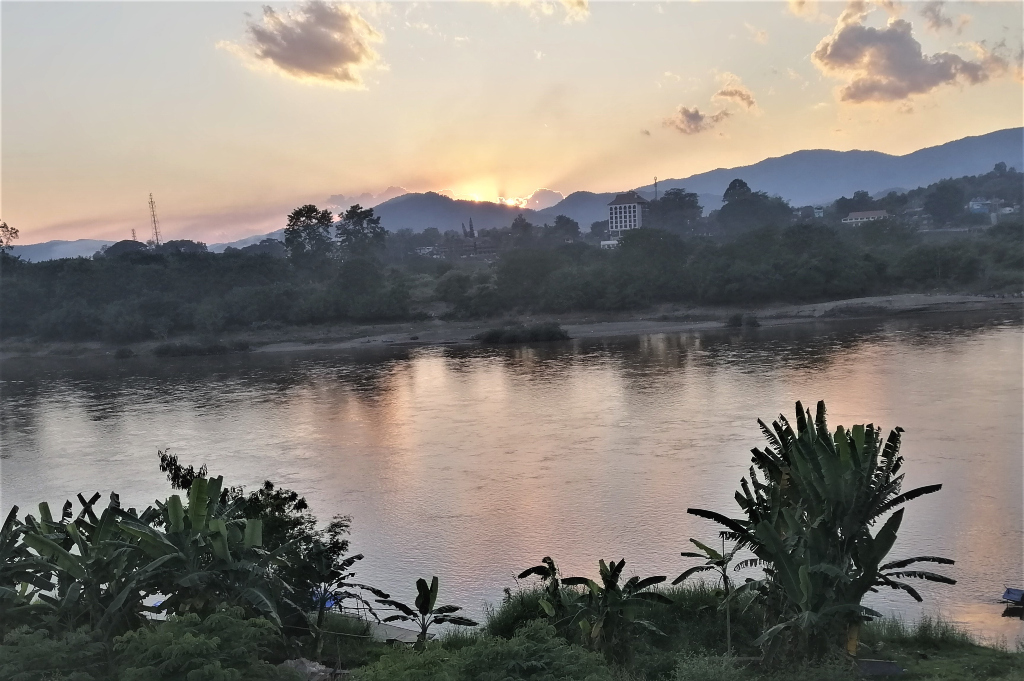General
● Get out at the crack of dawn. The best time of day is when the sun is rising and earth’s creatures are waking up. Temperatures tend to be more agreeable, especially in the tropics.
Mornings tend to be dry and afternoons and evenings can be wet during rainy season. Early morning is the most photogenic segment of the day. Like before dusk, after dawn gives us the best natural lighting for photography.
● Ask for an unobstructed window seat at airport check-in. If you like to look out the window when flying, you may be able to set this up online beforehand. I never do since it costs extra. More often than not, I get a window seat by requesting it at check-in.
The same is true for buses and trains when there’s assigned seating. I try to get a window seat to take in the outside surroundings.
● Always maintain your EQ. If you don’t like a situation, remain calm and patient. Often in warmer climates, day-to-day existence operates more slowly than what you may be used to.
Never show anger. If you do, the situation can likely get worse. Try to smile. This will enhance contentment among you and all those you come in contact with.
● Learn as much of the local tongue as possible. Many people in the world speak at least some English. But anything you can whip out in their language will earn respect and add to the pleasant experience.
Start with hello and thank you. Slowly build from there. If you’re interested in Latin America, studying Spanish is a boon that will change the whole experience.
English continues to grow worldwide. It’s common to find in tourist towns. However, many parts of the world still have low levels of English.
Learning and using another language is fun.
Budget
● Know the numbers. This reduces the chance of being taken advantage of. Whatever it takes, even if you have to drill the numbers in, do it!
Once you learn one to 10, the rest goes fast and easy. Also learn how to say: How much? This is beyond doable even though the majority of travelers typically overlook it.
● Almost everything is negotiable. I often try to haggle down hotel rates and bus tickets. I have a general rule: I don’t negotiate over small change. It is not worth the energy.
Bargaining behavior varies from country to country. It’s less prevalent in richer repbublics. I generally set a goal of getting 20% off bus tickets and hotel rooms, and 50 to 300% off non-food items from street hawkers. Food isn’t negotiable unless you’re being overcharged.
I make it a point to not purchase from a person or business that has tried to take advantage of me.
Depending on where you are, discounts from street hawkers can be as much as 50% or even more in some situations. Read up on the place you’re in and ask locals how much you should pay for something.
Once you know the actual cost of an item, you can haggle down to that price or close to it. Start to walk away calmly if the person refuses. Chances are they’ll adhere to your price. If they don’t, it is perfectly OK to walk away with a smile while saying thank you.
● Get a TD Bank account in the US. As long as you can maintain a balance of $2,500 or more, you’re reimbursed monthly for ATM fees accrued anywhere in the world.
● Take buses not taxis if possible. This saves considerable amounts of money. Research airports, bus and train stations where you’ll be arriving.
Find out about local transportation options. Ask hotel or hostel staff which local bus you should take to get somewhere. Riding buses can be a great method of inexpensive transportation and makeshift sightseeing.

● Walk away from a station or airport to a main road if you have to get a taxi. Outside Riyadh, Saudi Arabia’s train station, I knocked 75% off the asking price by walking two minutes away from the main entrance. At the airport in Lima, Perú, I payed 25% less by doing the exact same thing.
● Avoid hotel booking sites if possible. If it is not busy season or a holiday like Easter week in Latin America, or Loy Krathong in Thailand, you can typically save money by walking into a hotel without a reservation.
You can save as much as several dollars per night, since the walk-in rate is often different from the rate a booking website provides. Depending on supply and demand, you have the ability to haggle a cheaper rate when you walk in.
It can be country specific. For example, in Perú or Colombia, if you speak Spanish, it is often possible to get the cost down by 10 or 20%, whereas in Thailand, prices are more fixed.
There are two situations where it’s a good idea to have a place of lodging booked in advance. If you’re arriving in a big city, it is a great idea to have something reserved. If you’re arriving somewhere at night, definitely have your accommodation booked ahead of time.
● Buy water at the supermarket. If your place of accommodation doesn’t include refillable drinking water, buy water in semi bulk at the grocery store. It usually costs less than half of what you would pay elsewhere.
These savings can add up in a month’s time. For example, in Santa Marta, Colombia, you can get a liter of water at the big EXITO store for a fraction of what a smaller convenience store charges.
● Avoid restaurants in tourist zones. It doesn’t take more than walking a few blocks to find comparable and more authentic food for less of your hard-earned dinero.
If you’re a person who works on a laptop, you probably like to hang out in cafés and connect.
For me, it’s still worth splurging a little extra on food and drink for a more ergonomically-friendly experience.
● Read as much as you can about a country. While in Colombia for the second time, I read somewhere that all bus tickets are negotiable. It’s true. After that I was usually able get 25% off an asking price.
I find the cheapest travel book and download it to my Kindle. Or if you have a Kindle Unlimited subscription, that’s a great way to find books too. I go with any book I find, whether it’s Lonely Planet, Rough Guides, or Moon Guides, etc. These books provide quick and useful information.
A novel or non-fiction book set in a country is a great way to get insight. While in Nicaragua, I read a fascinating book called: The Country Under My Skin by Gioconda Belli. It offers copious knowledge and history that I hadn’t known about Nicaragua.
● Get your dental work done. If you’re from a country like the US where dental work is expensive, try to get it done when abroad. I always try to get a cleaning done when I’m in another country.
In both Saudi Arabia and Colombia, a cleaning can easily cost one-fifth what it would in the US.
Not once have I had to fill out paperwork. There are no consultation fees. They take you right in.
Just as, if not more important than saving money, preserving your teeth is excellent for overall health and well being.

Health
● Stay Hydrated. Sip water often. It’ll enhance your overall health, well-being, and keep your body filtered. Carry a non-plastic bottle and fill it when you can. This reminds us to stay hydrated.
Drinking enough water is easy to forget, so make it a mantra. My hydration incantation is: noa because I am in Laos at the time of writing, where noa is the word for water.
Focus on water flow. Equate it with life flow.
● Wash your hands before eating. Make it a habit to wash your hands before eating. Do your best to find a sink with soap and water. If it is not available, use hand sanitizer or a refreshing tissue. This will decrease the chances of swallowing bacteria that could be passed on from a dysentery-laden finger, to your food.
Cheaper food in under developed areas enhance the chances of developing a food-borne illness. Usually when you get sick, it’s a 24-hour bug that entails vomiting, diarrhea, rest and re-hydration.
If you find yourself with lighter symptoms but sick for more than a couple of days, get to the nearest medical establishment for a stool test.
● Eat as many fruits and vegetables as you can. This helps the immune system. Whole, nourishing food compliments life.

● Cover sun-exposed skin. Be aware of the sun, especially at higher altitudes as its’ closer and can burn your nose, face or forehead quickly.
Lavender essential oil can help soothe burning skin. Essential oils shoudn’t be exposed to the sun, so it’s best to soothe your burns with lavender essential oil in the evening.
● Bring mosquito repellent. Pay specific attention during dusk and dawn, especially if the weather is wet. Eating garlic (the less cooked the better) and putting citronella oil (mixed with a carrier oil like coconut oil) on your skin helps defend against flying pests.
Try to avoid DEET. It is not only toxic to the mosquito but to you, too.
● Do pushups and stretching exercises. You’ll feel better. In many places you can find free workout machines. Gyms are popular everywhere and tend to have hourly, daily, weekly and monthly rates.
Renting a bicycle can be fun. Power walks can are therapeutic. Yoga is usually available in big urban centers or where there are travelers. You don’t have to go as far as India, although that’s as good as any place to do it.
Get whatever exercise you can. Your body craves it. Don’t forget, the brain is an organ. It responds to cardio-exercise like the rest of our physiological makeup.
Tech
● Keep electronic devices charged as often as possible, especially in areas where power outages happen regulary. Having a cheap local SIM is a great way to stay conncected during a power outage. This way the phone acts as a hot spot. It tethers to a laptop or other device.
While having a power bank is a great option, hotel rooms and cafes are usually equipped with enough outlets.
● Purchase a local adapter for plugging in your laptop. Not all outlets are universal. Adapters are inexpensivally available in local hardware stores.
Your place of accommodation might let you borrow an adapter or tell you where you can get one. In Chiang Mai, I had to hunt around until I found one at Computer Plaza. The one I purchased there also works in neighboring Laos, Cambodia and Vietnam.
● Ask for a room that’s close to the router. It’s good to make sure the Wi-Fi works before you pay for the room, especially if you’re in a developing land or cheap hotel. That said, solid Wi-Fi access continues to be more ubiquitous in places of accommodation worldwide.
